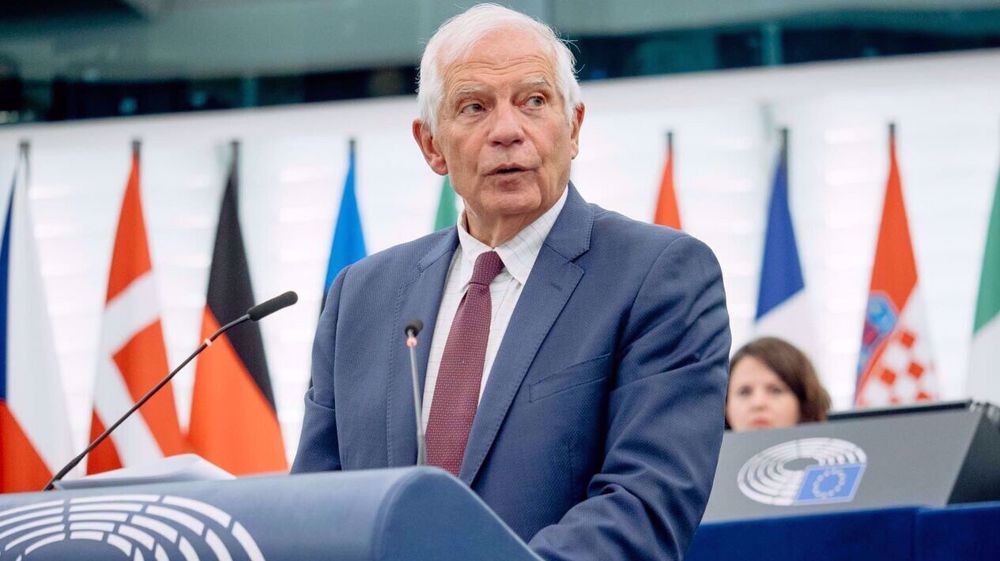Lithuania proposes creation of ‘military Schengen’
Lithuania has proposed the creation of a “military Schengen” zone within the European Union (EU), where defense cooperation among member states would be increased.
Lithuania’s Defense Minister Raimondas Karoblis made the proposal at a meeting of EU defense ministers in the Estonian capital of Tallinn on Friday, calling on the member states to join a “military Schengen project that would facilitate the movement of troops in Europe.”
Lithuania is already a member of the NATO, a military alliance of mainly European countries, and its “military Schengen” proposal would, if materialized, only create an alliance within an alliance.
Karoblis said the project was meant at “simplifying procedures and investing in infrastructure.”
He claimed the proposal was supported by many of the EU’s member states and its implementation was “important both in the EU and for NATO.”
“Lithuania supports enhanced EU defense cooperation, and permanent structured defense cooperation must contribute to the increase in defense spending in the EU and the creation of real defense capabilities in Europe,” he said.
The European Commission had earlier proposed the establishment of a common defense fund, allocating 500 million euro ($601 million) to finance military projects and develop defense capacity by 2020.
Lithuanian President Dalia Grybauskaite announced last month that the US aimed to increase its military presence in the Baltic state — close to Russia’s borders — and possibly double the number of its warplanes there during joint drills between Russia and Belarus in September.
The biennial drills are to be held in Belarus from September 14 to 20 and will involve some 13,000 troops, 70 aircraft, and nearly 700 land vehicles. They will span across Belarus, the Baltic Sea, western Russia, and the Russian exclave of Kaliningrad.
Russia features prominently in the military calculations of the West. During the Cold War, the NATO essentially served as a bulwark against Russia, and an anti-Russia mentality continues to this day.
NATO member Poland has criticized the planned joint drills by Russia and Belarus.
Warsaw claims that Moscow could not only deploy more than the declared number of troops but also that the military exercises could provide cover for a possible permanent relocation of offensive equipment near the Baltic countries.
This is while Russia has repeatedly declared that the upcoming drills will be purely defensive, rejecting as a “myth” any allegation that the maneuvers would threaten other countries.
Russia and the NATO have had strained ties since conflict erupted in eastern Ukraine some three years ago. More than 10,000 have been killed in the war in Ukraine’s industrial east, where the Kiev government is fighting pro-Russia forces.
Russia has also long been wary of the NATO’s expansion eastward — toward Russia’s western borders. NATO has deployed around 4,000 troops, consisting of four battle groups, to Estonia, Lithuania, Latvia, and Poland in recent years.
Meanwhile, the pro-Western government in Moldova has sent 57 troops to participate in drills in Ukraine, in a hostile gesture against Russia.
Moldova is not a member of the NATO, and its president, Igor Dodon, who is the country’s commander-in-chief, had vetoed the decision to send the troops to Ukraine. The Moldovan Defense Ministry, however, ignored the president, deploying the troops anyway.
In Numbers: 200 days of Israeli genocidal war against Palestinians in Gaza
Death toll mounts in Gaza as Israeli genocidal war marks 200 days
Hamas dismisses US accusation of obstructing ceasefire in Gaza
Gaza solidarity protests sweep US universities despite police crackdown
Tension flares in India after Modi's anti-Muslim hate speech amid elections
Iran, Pakistan to bring peace, stability to region through cooperation: Raeisi
'Regrettable': Iran slams EU sanctions, says bloc satisfying criminal Israeli regime
Hamas to survive as Israel fails to destroy command centers, tunnels: US media











 This makes it easy to access the Press TV website
This makes it easy to access the Press TV website